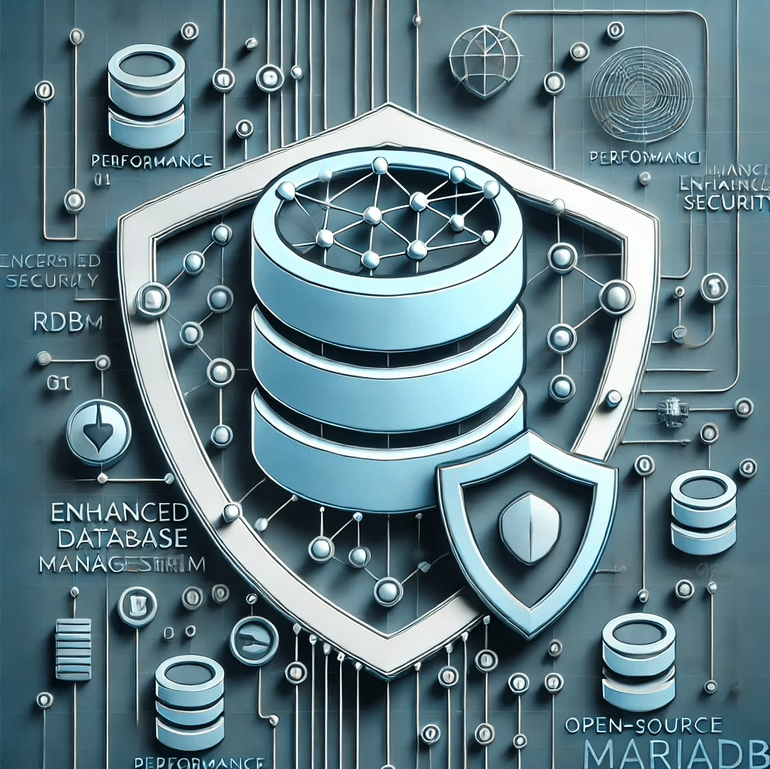In the evolving landscape of database management systems, organizations are increasingly seeking solutions that offer both robust performance and the flexibility to adapt to changing business needs. MariaDB, a widely recognized fork of MySQL, has emerged as a leading open-source relational database management system (RDBMS) that addresses these demands. Created by the original developers of MySQL, MariaDB was born out of concerns over Oracle Corporation’s acquisition of MySQL and the potential implications for the open-source community. Today, MariaDB is celebrated for its compatibility with MySQL, performance enhancements, and a range of features that cater to modern enterprise requirements.
This article delves into the key features of MariaDB, its advantages for businesses, and how Curate Consulting Services can assist your organization in finding the specialized talent needed to maximize its benefits.
The Genesis of MariaDB: A MySQL Fork with a Purpose
MariaDB was created by the developers of MySQL who sought to maintain the open-source ethos and ensure the ongoing development of a freely available, high-performance RDBMS. The acquisition of MySQL by Oracle Corporation in 2010 raised concerns within the developer community about the future direction of MySQL, particularly regarding its open-source status and the pace of innovation. To address these concerns, MariaDB was forked from the MySQL codebase, with a commitment to remain open-source and to continue evolving in response to user needs.
MySQL Compatibility: A Seamless Transition
One of the most compelling aspects of MariaDB is its high level of compatibility with MySQL. For organizations that have invested in MySQL-based applications and databases, MariaDB offers a seamless transition with minimal changes required. Both MariaDB and MySQL share similar SQL syntax, drivers, and connectors, which means that applications built for MySQL can typically run on MariaDB without significant modifications.
This compatibility is particularly advantageous for enterprises looking to migrate from MySQL to MariaDB, whether due to performance requirements, a desire for additional features, or concerns over licensing and support. By choosing MariaDB, businesses can leverage a familiar environment while benefiting from the enhancements and optimizations that MariaDB brings to the table.
Performance Improvements: Speed and Efficiency
MariaDB has introduced several performance optimizations that set it apart from MySQL. These enhancements result in faster query execution times and improved overall system performance, making MariaDB an attractive option for businesses with demanding workloads. For instance, MariaDB includes features like the Aria storage engine, which is optimized for complex queries, and the Thread Pool feature, which improves the handling of large numbers of concurrent connections.
These performance improvements are particularly beneficial for applications that require real-time data processing, such as financial transactions, e-commerce platforms, and analytics systems. With MariaDB, organizations can achieve the speed and efficiency needed to stay competitive in today’s fast-paced business environment.
Advanced Storage Engines: Flexibility and Choice
MariaDB supports a variety of storage engines, each tailored to different use cases. The default storage engine, InnoDB, is the same reliable engine used by MySQL, offering robust transaction support and data integrity. However, MariaDB goes further by offering additional storage engines like Aria, TokuDB, and CONNECT, which provide unique capabilities for handling specific types of data and workloads.
The Aria storage engine, for example, is designed for complex queries and is optimized for situations where read speed is critical. TokuDB, on the other hand, is known for its ability to handle high write loads efficiently, making it suitable for applications that involve large amounts of data ingestion. The CONNECT storage engine extends MariaDB’s functionality by allowing it to access and query data from external sources, including NoSQL databases, JSON, and XML files.
For enterprises, this range of storage engines means that MariaDB can be tailored to meet specific business needs, providing the flexibility to optimize performance across different types of workloads.
NoSQL Capabilities: Bridging the Gap
While MariaDB is fundamentally a relational database, it offers NoSQL capabilities through the CONNECT storage engine. This feature allows MariaDB to access and query NoSQL data sources, providing greater flexibility for organizations that need to manage both structured and unstructured data. By bridging the gap between SQL and NoSQL, MariaDB enables businesses to handle diverse data types within a single database system, simplifying data management and reducing the need for multiple database platforms.
For example, an enterprise might use MariaDB to manage relational data for transactional applications while also querying NoSQL data sources for analytics or customer insights. This hybrid approach allows businesses to leverage the strengths of both SQL and NoSQL without the complexity of maintaining separate systems.
Enhanced Security: Protecting Your Data
Security is a critical concern for any organization, and MariaDB addresses this with a comprehensive suite of security features. These include user account management, access control, encryption at rest and in transit, and authentication plugins. MariaDB also offers auditing capabilities, which are essential for organizations that need to track and log database activities for compliance purposes.
With these robust security features, MariaDB ensures that sensitive data is protected against unauthorized access and breaches. This is particularly important for industries such as healthcare, finance, and government, where data security and regulatory compliance are paramount.
Replication and Clustering: High Availability and Scalability
MariaDB supports replication, allowing organizations to create copies of their databases on other servers for load balancing, failover, and data redundancy. Replication can be configured in various ways, including master-slave and master-master setups, providing flexibility in how data is distributed and accessed.
For businesses that require high availability and disaster recovery, MariaDB offers clustering solutions like Galera Cluster. Galera Cluster enables synchronous multi-master replication, where all nodes in the cluster can process read and write operations simultaneously. This ensures that data is consistently available and up-to-date across all nodes, even in the event of a failure.
The combination of replication and clustering makes MariaDB an ideal choice for enterprises that need to ensure continuous availability of their databases, particularly in mission-critical applications.
Community and Commercial Support: A Strong Ecosystem
MariaDB benefits from a vibrant and growing community of users, developers, and contributors who provide support, documentation, and plugins. This active community fosters innovation and ensures that MariaDB continues to evolve in response to user needs.
In addition to community support, there are commercial entities that offer professional services, including consulting, support, and training for MariaDB. This means that organizations can choose the level of support that best meets their needs, whether they prefer to rely on community resources or engage with commercial vendors for more specialized assistance.
How Curate Consulting Services Can Help
As organizations increasingly adopt MariaDB for its performance, flexibility, and open-source nature, the demand for skilled professionals who can effectively implement and manage this technology continues to grow. Curate Consulting Services is here to help your organization navigate the complexities of MariaDB adoption by providing expert consulting and staffing solutions.
Finding the Right Talent for Your MariaDB Projects
At Curate, we understand that the success of your MariaDB initiatives hinges on having the right team in place. Our extensive network of highly skilled professionals includes database administrators, developers, and security experts who are proficient in MariaDB and other advanced database technologies. We work closely with our clients to understand their specific needs and match them with talent that can drive their projects to success.
Tailored Consulting Solutions for Seamless Implementation
Beyond staffing, Curate Consulting Services offers tailored consulting solutions designed to help your organization seamlessly implement and optimize MariaDB. Whether you’re looking to migrate from MySQL, enhance your current MariaDB deployment, or develop new data-driven applications, our team of experts is here to guide you every step of the way.
Ensuring Long-Term Success with Ongoing Support
Our commitment to your success doesn’t end with the initial implementation. At Curate, we provide continuous support, training, and knowledge transfer to ensure that your team is fully equipped to manage and optimize MariaDB for the long term. As your business grows and your needs evolve, we are here to help you adapt and thrive in an increasingly data-driven world.
Conclusion
MariaDB represents a powerful evolution in database management systems, combining the reliability and familiarity of MySQL with enhanced performance, advanced features, and a strong commitment to open-source principles. Its compatibility with MySQL, along with its robust security, replication, and clustering capabilities, make it an ideal choice for modern enterprises looking to build scalable, secure, and high-performing applications.

